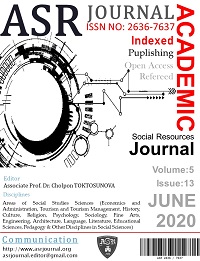Author :
Abstract
Osmanlılarda Batılılaşma hareketi Tanzimat Dönemi’ne kadar sadece askeri alanlarda gerçekleşmiştir. Tanzimat Fermanı ile sosyal ve siyasi hayatta değişiklikler olmuş, Osmanlı kültürü yeni bir boyut ile karşılaşmış, o günün medyası da bu etkileşimin baş aktörlerinden biri olarak yerini almıştır. Osmanlı aydınlarının pek çoğu Batıya hayranlık duyuyor ve Avrupa'yı kendi toplumları ile kıyaslıyorlardı. Oradaki kurum, kuruluş ve hayat tarzını üstün tutup sürekli gündemde tutuyorlardı. Çok hızlı bir şekilde yayılan ve bazı Osmanlı devlet ricali ve etkin konumda olan tebaasını etkisi altına alan Batılılaşma dayatmasının önündeki en büyük engel ise “Din” olgusuydu. Bu düşüncede olan kişilerin düşüncesine göre Osmanlı Devleti’nin din, gelenek ve kültürü, tepeden inen bu Batılılaşma hareketi ve onun çığırtkanlığını üstlenen medya baskısı ile etkisini kaybedecekti. Batılılaşma girişimleri çoğu kez ya Batılı ülkelerin baskılarıyla ya da dolaylı baskılarla gerçekleştirildiğinden, sonuçları izlendiğinde onların çıkarları ile örtüşmüş, toplumun iç dinamiklerini, gelişme yönünde değil, bozulma ve gerileme yönünde etkilemiştir. Ayrıca o zamanki medyanın ve servetin sahibi olan azınlıklar, Osmanlı’da siyasal, ekonomik ve kültürel açıdan Batı çıkarlarının hamisi ve temsilcisi rolünü de üstlenmişlerdir.
Keywords
Abstract
Westernization movement in the Ottomans took place only in military fields until the Tanzimat Period. With the Tanzimat Edict, there have been changes in social and political life, Ottoman culture has come across with a new dimension and the media of that day has taken its place as one of the main actors of this interaction. Many of the Ottoman intellectuals admired the West and compared Europe with their own communities. They kept the institutions, organizations and lifestyles there and kept them on the agenda. The biggest obstacle to the imposition of Westernization, which had spread rapidly and influenced some of the Ottoman state's influential and influential subjects, was the phenomenon of “Religion“. According to the opinion of the people who were in this view, the religion, tradition and culture of the Ottoman Empire would lose its influence with this Westernization movement coming down from the top and the media pressure that assumed its cry. Since Westernization initiatives are often carried out either by Western pressures or indirect pressures, their results coincide with their interests when viewed, affecting the internal dynamics of society, not towards development, but towards deterioration and decline. In addition, the minorities, who possessed the media and wealth at the time, also acted as the protector and representative of Western interests in political, economic and cultural terms.





